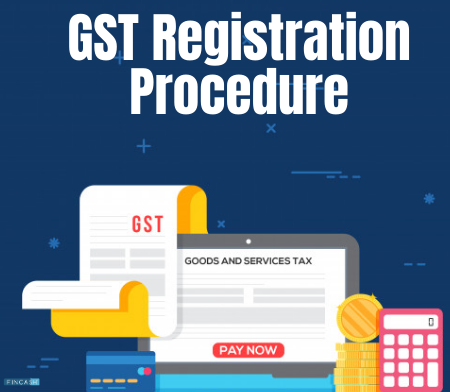Optimize Your Cost Savings with the very best GST Registration Services in Singapore
Optimize Your Cost Savings with the very best GST Registration Services in Singapore
Blog Article
From Beginning To End: The Ultimate Roadmap to GST Enrollment for Businesses Seeking Financial Stability
Browsing the intricacies of Goods and Provider Tax (GST) registration is a critical step for businesses aiming for economic stability. Breaking down the roadmap right into manageable steps can improve the enrollment trip for businesses looking to boost their monetary standing.
Comprehending GST Fundamentals
Digging into the basic principles of Item and Services Tax Obligation (GST) is vital for acquiring a comprehensive understanding of its effects on businesses and the economy. Input Tax Obligation Credit Rating (ITC) is a substantial feature of GST, allowing companies to claim debt for taxes paid on inputs, minimizing the general tax concern. Understanding the essentials of GST is vital for organizations to abide with tax obligation guidelines, handle their finances effectively, and add to the country's financial development by participating in a transparent tax obligation system.
Eligibility Requirements for Enrollment
To sign up for GST, services have to satisfy particular eligibility criteria developed by the federal government. The key qualification need is that any kind of business associated with the supply of items or solutions with a yearly accumulation turn over over the threshold limitation established by the authorities need to sign up for GST. As of the present guidelines, the threshold limit for GST registration is an annual aggregate turn over of 40 lakhs for companies operating within a state, except for unique group states where the limit is 20 lakhs. Furthermore, particular services are needed to register for GST regardless of their turnover, such as interstate suppliers, informal taxable persons, and companies reliant pay tax obligation under the reverse fee mechanism. It is critical for companies to completely assess their turn over and transaction kinds to establish their GST registration obligations properly. Failing to sign up for GST when eligible can bring about charges and legal repercussions, making it crucial for companies to abide by the defined eligibility standards.
Papers Required for Registration
Having actually met the eligibility criteria for GST registration, businesses need to now ensure they have the requisite files in area to continue with the enrollment process successfully. The papers required for GST registration normally include proof of business constitution, such as partnership action, registration certification, or incorporation certification for different kinds of services. Additionally, organizations require to provide papers developing the principal location of company, such as a rental agreement or electricity expense.
Step-by-Step Enrollment Refine
Starting the GST registration process includes a series of structured actions to guarantee a seamless and certified registration for businesses. The very first step is to check out the GST portal and complete the registration kind with accurate information of business entity. Following this, the applicant gets a Short-term Reference Number (TRN) which is made use of to resume the application procedure if it's not finished in one go.
Following, all needed records as per the checklist given by the GST portal demand to be submitted. These records typically consist of evidence of organization identity, address and registration proofs of marketers, economic declarations, and company entity's PAN card.

Post-Registration Conformity Guidelines

Final Thought
In verdict, organizations seeking financial stability should recognize the fundamentals of GST, fulfill qualification criteria, collect required documents, follow the step-by-step registration process, and abide with post-registration standards - Best GST registration services in Singapore. By adhering to these actions, companies can make sure compliance with tax obligation policies and preserve monetary security in the long run
In addition, particular companies are required to register for GST irrespective of their turn over, such as interstate vendors, informal taxed persons, and companies responsible to pay tax obligation under the reverse charge mechanism.Having actually satisfied the eligibility criteria for GST additional resources registration, organizations must now ensure they have the requisite documents in location to proceed with the enrollment process effectively. The documents needed for GST enrollment commonly include proof of organization constitution, such as collaboration act, enrollment certificate, or consolidation certificate for various kinds of services. In addition, services need to offer files establishing the major location of business, such as a rental arrangement or electricity costs.Beginning the GST enrollment process includes a collection of structured steps to make certain a certified and smooth registration for organizations.
Report this page